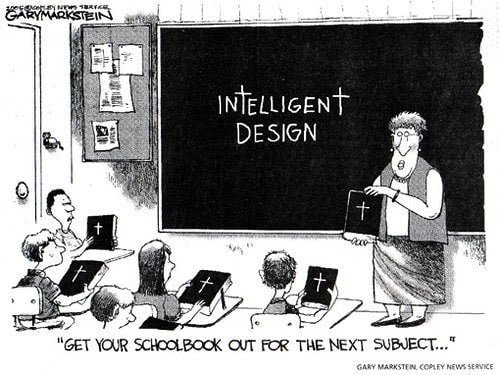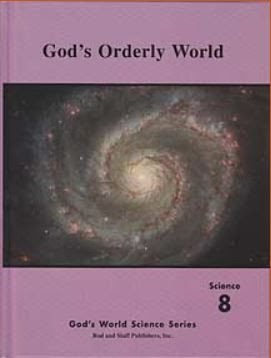
As a Baptist pastor, how did I answer science questions? The short answer is . . . I didn’t.
I was five years old when my parents joined Tim LaHaye’s church, Scott Memorial Baptist Church in San Diego, California. I would remain associated with the Evangelical church for the next forty-five years, pastoring churches in Texas, Ohio, and Michigan. Whether as a church member or as a pastor, I and the world I was a part of were insulated from secular science. As a pastor, I rarely had someone ask me a science question, and the reason for this is quite simple. I believed and taught others to believe:
- The Bible is the inspired, inerrant, infallible, Word of God.
- The Bible, in most instances, is meant to be read literally.
- Genesis 1-3 accurately and literally records HOW God made the universe and everything in it in six 24-hour days, 6,027 years ago
- If science conflicts with what the Bible says, science is wrong and the Bible is right. Always, without exception.
- Questions and doubts are the works of Satan.
- Certainty of belief is a sign of faith and maturity.
Besides the Bible, we Fundamentalists had our own science books and scientists. My favorite Evangelical “scientists” were Henry Morris and John Whitcomb. Morris had a degree in engineering, Whitcomb a degree in theology. Even though their books contradicted accepted scientific facts, they had a high view of Scripture and accepted the Bible as the final answer to every question, so their books carried great weight in Evangelical circles. I do not doubt that if I were still a pastor I would have taken church groups to the Creation Museum — Ken Ham’s monument to ignorance — so we could see the “proof” of our creationist beliefs.
The children in the churches I pastored were largely insulated from the world. Many of the children were homeschooled or attended private Christian schools. Children were not encouraged to go to college, especially wicked secular colleges. The highest calling for a woman was to marry a godly man and bear children, and the highest calling for a man was to become a preacher or a missionary. All other vocations were considered inferior.

From 1983-1994, I pastored Somerset Baptist Church in Mt. Perry, Ohio. For five years, we operated a tuition-free, church-member-only, Christian school. We used Rod and Staff science textbooks — books that emphasized the young earth creationist point of view. Rod and Staff is a Mennonite/Amish book publisher. My wife and I also homeschooled our children. We used Rod and Staff textbooks to teach science to our children.
I have very little science training. I took a general science class in 9th grade, biology in 10th grade, and biology in college. My college biology class was an absolute waste of time. No lab. No experimentation. The teacher, a local pastor, read to us from a biology book published by a Christian book publisher. The only thing I remember from my college biology class (the same class my wife took) was the teacher’s lecture on not marrying outside of your class, religion, or race. He was quite bigoted and racist.
As a pastor, the few times I was asked a science question that challenged my creationist beliefs I replied:
The BIBLE says . . .
This was the answer I gave for almost every challenge to what I taught.
The BIBLE says . . .
THE BIBLE SAYS really meant:
This is my interpretation of the Bible, my interpretation comes straight from God, my interpretation is final, so shut up and get back to serving Jesus.
There are thousands and thousands of American churches and pastors who hold similar views. The United States is one of the most scientifically advanced nations on earth, yet, at the same time, we are quite ignorant about basic scientific facts. We can thank religion for our collective ignorance.
Bruce Gerencser, 68, lives in rural Northwest Ohio with his wife of 47 years. He and his wife have six grown children and sixteen grandchildren. Bruce pastored Evangelical churches for twenty-five years in Ohio, Texas, and Michigan. Bruce left the ministry in 2005, and in 2008 he left Christianity. Bruce is now a humanist and an atheist.
Your comments are welcome and appreciated. All first-time comments are moderated. Please read the commenting rules before commenting.
You can email Bruce via the Contact Form.

Well amen to that. But it begs the question; what”s the cause and what’s the affect? Does religion promote ignorance or does ignorance enable religion? Advanced secular education and religion seem inherently incompatible and yet we have religious people sitting on the supreme court. Judging by definition is thinking and reasoning what’s true and what’s false, what’s nonsense and what’s reasonable. Yet, if I’m not mistaken there’s not an atheist on the court, at least not one who will admit to it.
I find it interesting, to say the least, that Ken Ham’s bachelor’s degree is in “applied science.”
I know, and have known, people who attended religiously-affiliated elementary, junior high and high schools. (I went to Catholic school until 8th grade.) With the exception of those who attended the liberal Catholic (especially Jesuit) and mainline Protestant schools, and Reform Jewish yeshivas, they have described their science education as “mediocre,” “weak” or “next to non-existent.” Some said their math instruction was “good,” but most seem to think it was “OK.”
The ones who are most critical of their science/math education are, not surprisingly, those who are educators in those fields or who work in healthcare or technology.
“Does religion promote ignorance or does ignorance enable religion?”
That’s a good question, and the answer is complex.
Modern science developed from the desire of christian medieval scholars to understand everything better – the bible and also god’s creation. The first great scientists were all devout Christians. In the course of centuries, this scientific development emancipated itself from the doctrines of the church.
On the other hand, social organisations including the churches tend to stick to their worldview and traditions very persistently.
Humans do not like cognitive dissonance. They like to be right. Therefore, we are very good at compartmentalizing our worldview, if there are discrepancies.
Somebody can be a brilliant scientist in his field, and have very irrational views at the same time in another field.
Also, we humans do not like to admit mistakes. Its sometimes psychologically easier to find arguments for my current view on things, than to admit that my view is maybe not so right after all.
The most important thing we can teach our children is to be open-minded. It is okay to admit that I was wrong. This is actually a sign of maturity. Improving one’s knowledge is a good thing! And that means correcting wrong assumptions.
I was raised in a Southern Baptist home and attended fundamentalist Christian school that used Bob Jones University Press curriculum for some courses. Some of our books were really old but were castoffs from public schools that had purchased newer editions of books. Many of our science books were from BJU Press. I still remember the ridiculous “canopy theory” of the pre-Flood earth, as well as the lame objections to carbon dating methods (they claimed the methods were “contaminated” and this by an order of several thousands; they attributed the age of the universe to God creating everything with the “appearance of age”.) We did have a regular textbook for the advanced biology class, but it was redacted. Pages on mammalian reproduction and reproductive systems were cut out of the book, and anything to do with evolution was cut put or blacked out with black ink.
I worked at a university biochemistry lab at a university during summer breaks, and was surrounded by graduate students, professors, researc assistants, etc. These were all people with advanced science degrees. Some were Christians, though almost none were evangelicals. There were some really kind people who took an interest in me and tried to expose me to some different ideas. BUT ……. I was embarrassed and ashamed that I was in an anti-intellectual church and school. I never opened up to anyone about the lack of evolution education. I was immature and embarrassed.
I distinctly remember taking the ACT and encountering some questions on evolution in the science section. I had zero clue how to answer. Despite being an A student at Christian school, my score on the science section of the ACT was my lowest. That pissed me off.
In college I was afraid to take any biology courses because I had zero knowledge of evolution. Again, I was immature and afraid of being ridiculed or worse, failing.
I regret not asking for help.
At church, most of the kids attended public school and went on to public universities. Evolution wasn’t discussed a lot, but it was understood that “the Bible says” was the gold standard. I’m not sure how the public school kids navigated science classes. We didn’t discuss it.
Now I freely tell people about the shortcomings of Fundamentalist Christian education. People need to know. I no longer am embarrassed because I was able to learn outside that system (as an adult) and can point to how it’s damagingvto children but possible to learn once one is outside the system. Hopefully people who know me will judge the system and not its victims.
The Catholic church was right to ban the Bible . People leave the church when they read it.”